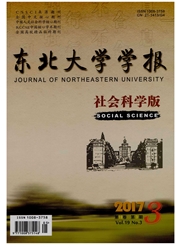

 中文摘要:
中文摘要:
译者在翻译中的隐身一直被口笔译两个领域作为职业操守广为推崇。要求译者隐身,体现了人们希望以译者隐身突显源语意欲表达的意义,希望译文不是译文,而是原作品。人们担心译者会歪曲语言文化事实。然而,越来越多的研究表明,隐身是一种主观想象,难以作为职业操守被践行。从现实角度来说,它作为职业操守是抽象的、不存在的。显身才是译者的真实存在状态,是译者的本质属性。译者的显身指译者能动地操控跨文化语言交流。这种操控不是歪曲语言文化事实,不是歪曲源语意欲表达的意义,而是确保源语意图,推动语言互动,是译者的职责所在。
 英文摘要:
英文摘要:
Invisibility has long been advocated as code of ethics in translation and interpretation.Invisibility indicates a wish to reflect writer's or speaker's intention by minimizing the existence of translator or interpreter.What is also wished is that translation or interpretation is not a translation or an interpretation,but the "original".The concern is that the linguistic and cultural facts might be misrepresented by translator or interpreter.More and more research illustrates that invisibility is illusive,which is difficult to be practiced in reality.And in point of fact,as code of ethics,invisibility is abstract and does not exist.Visibility is the real existence and essence of translator or interpreter.Translators or interpreters visibly control inter-cultural communication and are responsible for the progression of interaction instead of misrepresenting linguistic and cultural facts or original intentions,which are part of translators' or interpreters' duty.
 同期刊论文项目
同期刊论文项目
 同项目期刊论文
同项目期刊论文
 期刊信息
期刊信息
